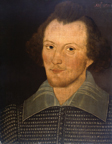Sean Rushton

What can theatre offer people suffering under the horrific conditions of war? Speakers from 15 countries will be examining this question through the prism of the most translated and performed playwright in the world: Shakespeare. A bilingual international conference timed to coincide with the 70th anniversary of the Second World War, entitled Wartime Shakespeare in a Global Context, will take place at the University of Ottawa and the Canadian War Museum from September 18 to 20, 2009.
The question begs to be asked: Why Shakespeare? And why the Second World War?
“In times of strife, war-torn populations often turn to Shakespeare for entertainment, sustenance and a sense of shared experience,” says Dr. Irena Makaryk, the University’s vice-dean at the Faculty of Graduate and Postdoctoral Studies and chair of the organizing committee for the upcoming conference. “Fought on every continent except Antarctica, the Second World War offers a unique period shared by almost every culture on the planet in which to analyze and probe the role and significance of Shakespeare in times of extreme social duress.”
To date, the role of the theatre during the Second World War has neither been carefully documented nor subjected to a thorough analysis, despite the fact that from the very beginning of the War, live theatrical performance was identified as contributing in a central way to the war effort. Interest in Shakespeare was weak in 1939, yet by War’s end, Shakespeare became a dominant cultural force that ignited an enduring explosion of scholarship, professional organizations and Shakespeare festivals.
“The social and political upheaval caused by the War, the sheer number of casualties, the reshaping of borders, the massive movement of refugees and the central event of the Holocaust reshaped our cultural values, paradigms and mores,” explains Makaryk, herself a child of parents who lived through and eventually fled from the horrors of the War. “More particularly, it changed our response to Shakespeare as a ‘universal’ author of great cultural authority.”
In the current climate of anxiety about the imposition of Western values (as represented, by Shakespeare, some argue) on the cultures of other countries such as Afghanistan, Makaryk believes the conference will offer a much needed and very timely forum for examining how the classics help define us, our values and our allegiances.
The conference will be attended by renowned Shakespeareans from around the world and by many other special guests. University of Ottawa President Allan Rock will deliver the opening address for the conference, and the British High Commissioner, Sir Anthony Cary, has agreed to speak at the banquet on Parliament Hill being sponsored by local MP David McGuinty.
The last day to register for the banquet is August 30, 2009. Inquiries related to the conference may be sent to the conference coordinator assistant, Marissa McHugh, at mmchu029@uOttawa.ca. For details on the conference, visit the conference website at www.wartimeshakespeare.uOttawa.ca.
To be or not to be: A portrait unveiled
The Sanders portrait of Shakespeare, owned by Lloyd Sullivan, an Ottawa resident who was not only a relation of the man who painted the portrait but of Shakespeare himself, will be unveiled and displayed in conjunction with the conference. The conference will serve as the first unveiling of the portrait in Ottawa and at a national museum.